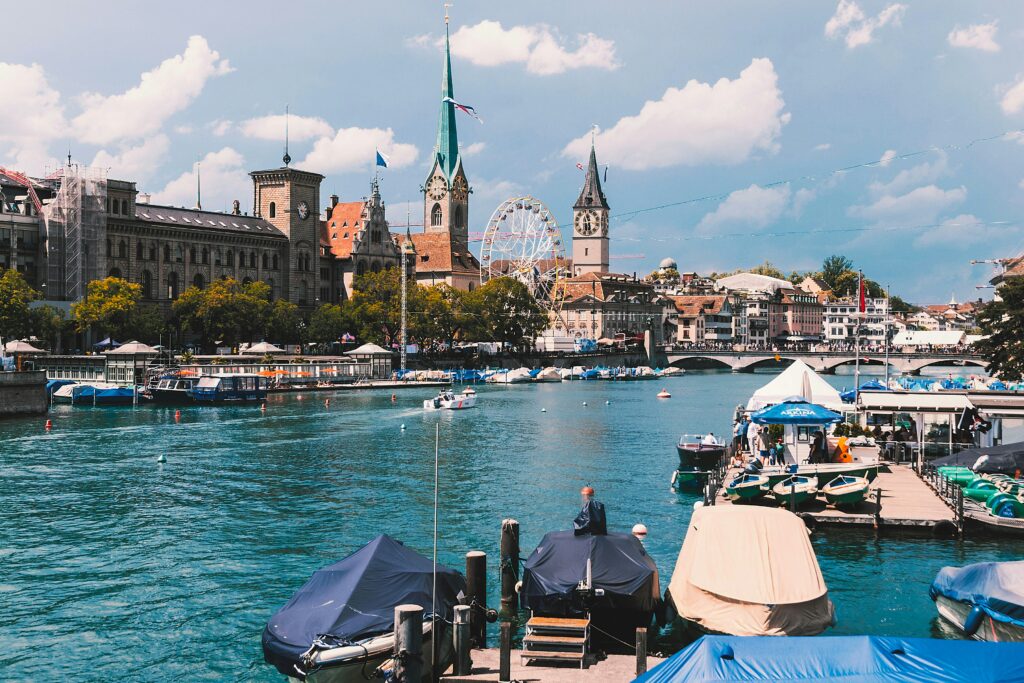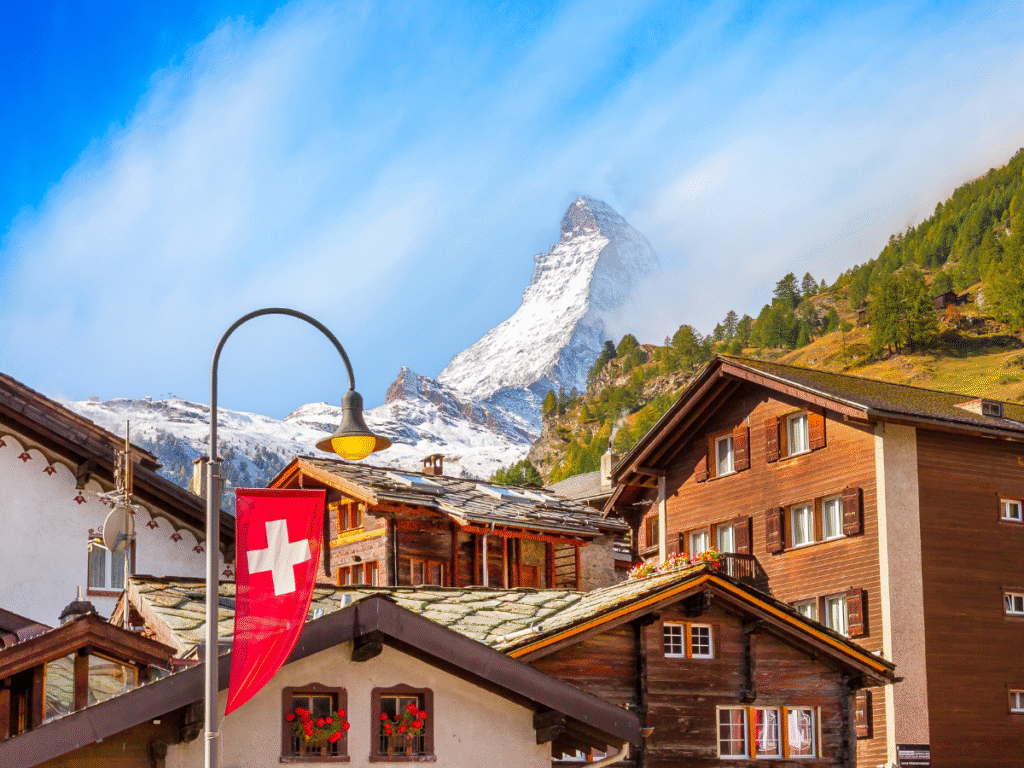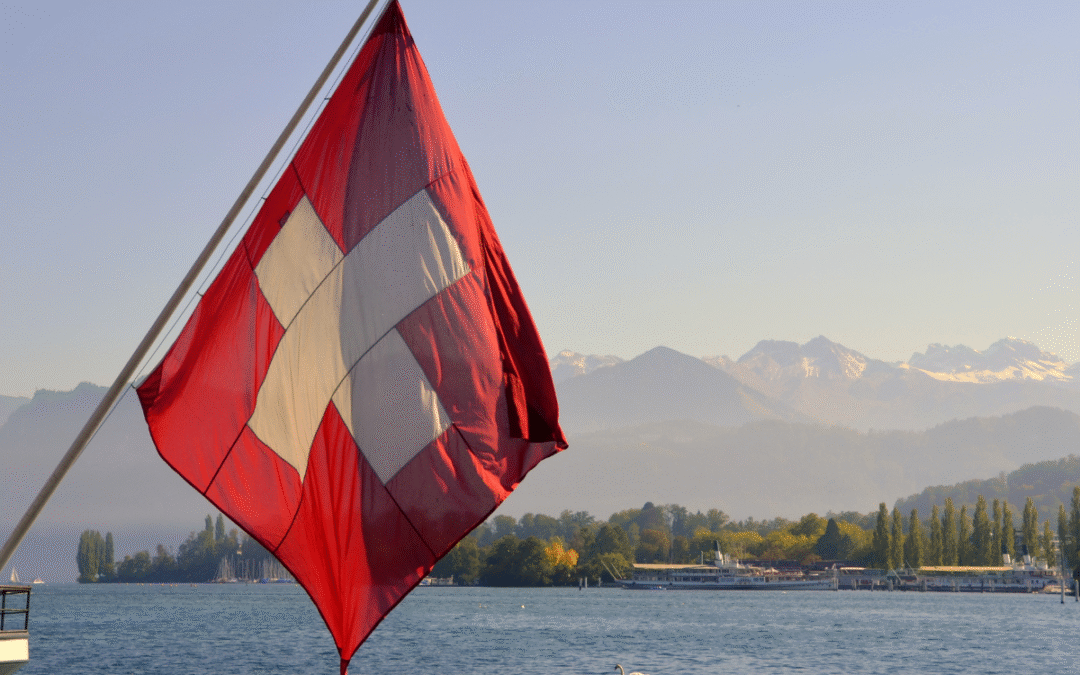Switzerland, with its stunning landscapes, clean cities, and excellent infrastructure, is a dream destination for many travelers. But the common question for anyone planning a trip is: how expensive is it?
The short answer is, very. Switzerland is widely considered one of the most expensive countries in Europe, and daily expenses can add up fast. While many agree that the quality and beauty of the experience are worth the cost, it’s essential to plan ahead to manage your budget effectively.
So, let’s explore some of the key areas where you can expect to spend the most and how to potentially save a little along the way.
TL;DR
Yes, Switzerland is expensive to visit. Most mid-range travelers spend around $240 per day, while those on a tighter budget might spend about $80 per day with thoughtful planning. Hotel stays, meals, and public transportation are the biggest expenses. Travelers can cut costs by staying in hostels or campsites, cooking meals, and enjoying free outdoor activities like hiking. Though the prices are high, the experience is unforgettable and worth the investment.
Why Is Switzerland So Expensive?
Switzerland ranks among the wealthiest nations in the world. That financial strength is reflected in the country’s pricing. A few key factors drive up the costs:
High Wages
Swiss workers earn some of the highest wages in the world. This pushes up the prices of services, from hotel stays and meals to guided tours and entry fees. Travelers pay more because businesses need to cover their higher labor costs.
Strong Currency
Switzerland uses the Swiss Franc (CHF), a very strong and stable currency. If you’re coming from a country with a weaker currency, your money may not go as far. This exchange rate can make a big difference, especially on long trips.
Import Costs
As a landlocked and mountainous country, Switzerland imports many goods, especially food and daily necessities. Shipping and import fees increase overall costs, which are then passed on to consumers, including travelers.
Challenging Geography
Switzerland’s terrain is filled with mountains, valleys, and lakes. While this makes the scenery beautiful, it also makes building and maintaining infrastructure more expensive. Hotels, roads, railways, and cable cars all cost more to construct and operate.

What You Might Spend Per Day
Your daily expenses in Switzerland depend on your travel style. Here’s a general idea of what you might expect:
Mid-Range Travel Budget: Around $240 Per Day
This is a realistic budget for travelers who want comfort without going overboard. It typically includes:
- Hotel: CHF 150–300 per night
- Restaurant meals: CHF 20–40 per meal
- Train or bus transport: CHF 75–100 per day
- Sightseeing or tours: CHF 30–50 per day
This allows for a relaxed trip with enjoyable meals, efficient travel, and a few experiences.
Lower Daily Spending: Around $80 Per Day
Travelers who are watching their expenses closely can spend less, but they need to plan carefully:
- Hostels or simple Airbnb: CHF 30–60 per night
- Groceries or takeaway meals: CHF 10–20 per day
- Buses and limited train rides: CHF 10–20 per day
- Free attractions and nature activities
This type of travel works best if you’re comfortable with simplicity and don’t mind preparing your own food or skipping paid tours.

Where You’ll Likely Spend the Most
Some parts of your trip will take up more of your budget than others. Here’s where to pay attention:
Hotels and Lodging
Lodging is often the biggest expense. A 3-star hotel usually costs between CHF 150 and CHF 300 per night. In popular cities like Zurich or Geneva, prices can be higher.
Ways to manage lodging costs:
- Book shared accommodations or smaller inns
- Use trusted vacation rental platforms
- Try camping in summer months
- Look for places that include breakfast
Dining and Food
Dining in Switzerland can be one of the biggest surprises for travelers. A simple sit-down meal can cost CHF 20–40, while fine dining can reach CHF 60 or more.
Ways to reduce food expenses:
- Buy groceries at local markets or stores like Migros and Coop
- Prepare meals in your lodging if there’s a kitchen
- Choose casual takeout over formal dining
- Opt for bakery sandwiches or snacks for lunch
Transportation
Switzerland has some of the best public transport in the world, and it comes at a cost.
- Swiss Travel Pass (3 days): CHF 230–250
- Intercity train (Zurich to Geneva): CHF 50–70
- Cable cars to the Alps: CHF 30–100
- City tram or bus: CHF 2.50–4 per ride
How to save on transport:
- Purchase a Swiss Travel Pass for multi-city trips
- Stay within one region to limit long-distance travel
- Use hotel-provided travel passes for local transport
Activities and Experiences
There are many memorable experiences in Switzerland, some of which come with entry fees.
Paid experiences:
- Cable cars and mountain viewpoints: CHF 30–100
- Lake cruises: CHF 25–60
- Ski passes: CHF 60–100 per day
- Museums and historic sites: CHF 10–20
Free experiences:
- Hiking scenic trails
- Swimming in lakes during summer
- Exploring mountain villages
- Strolling through old towns and public parks
Switzerland’s natural beauty means you can enjoy a rich experience without paying for every attraction.

Tips to Get More Value from Your Trip
Traveling through Switzerland doesn’t need to feel restrictive. Here are a few smart ways to manage your spending:
- Travel in the Shoulder Season
Spring and fall months like April, May, September, and October offer better rates and fewer tourists. - Focus on One Area
Limiting travel between cities cuts down on transportation costs and helps you enjoy the area more deeply. - Buy a Travel Pass
If you plan to use trains, boats, and buses often, a Swiss Travel Pass can offer strong value. - Choose Outdoor Adventures
Nature is Switzerland’s biggest attraction. Plan hikes, lake visits, and village walks into your itinerary. - Eat In When Possible
Even a few self-prepared meals can save a lot over the course of a week.
Is Switzerland Worth the Expense?
Absolutely. Despite the higher costs, many visitors say that Switzerland is one of the most rewarding places they’ve traveled.
Here’s why:
- Cities are spotless, organized, and safe
- Trains and buses are reliable and efficient
- The landscapes are breathtaking
- Local food, especially cheese and chocolate, is delicious
- Locals are polite and helpful, and often speak English
Whether you’re taking a scenic train through the Alps, enjoying a lakeside picnic, or walking through a charming village, Switzerland has a peaceful and refined beauty that stays with you.
Your Swiss Dream Trip, Planned Effortlessly
At Explore Effortlessly, we understand that Switzerland can feel like a big investment. That’s why we help travelers design trips that fit their budget, schedule, and style without missing the magic.
We’ll help you:
- Find the best value on high-quality hotels and flights
- Create a daily itinerary that maximizes both your time and money
- Pick travel passes that make sense for your trip
- Balance luxury and practicality, so you enjoy every moment
Switzerland may come with a higher price tag, but with the right plan, the return is unforgettable. Let us take care of the details so you can relax, explore, and enjoy this remarkable country without the stress.
Ready to experience Switzerland with ease? Contact us today, and let’s make your dream trip a reality.
Love exploring effortlessly? Get weekly travel inspo, luxury deals, and behind-the-scenes stories straight to your inbox here.

